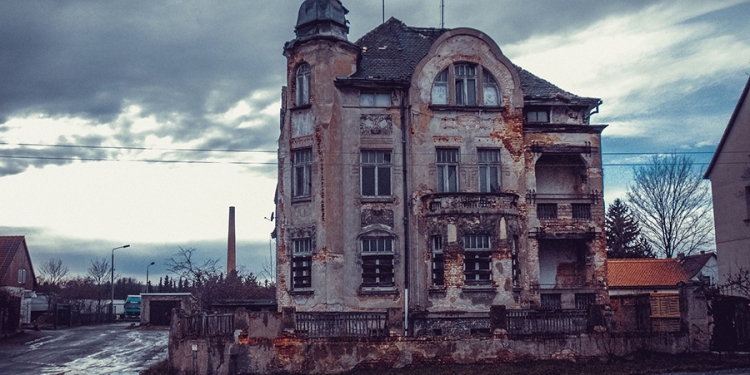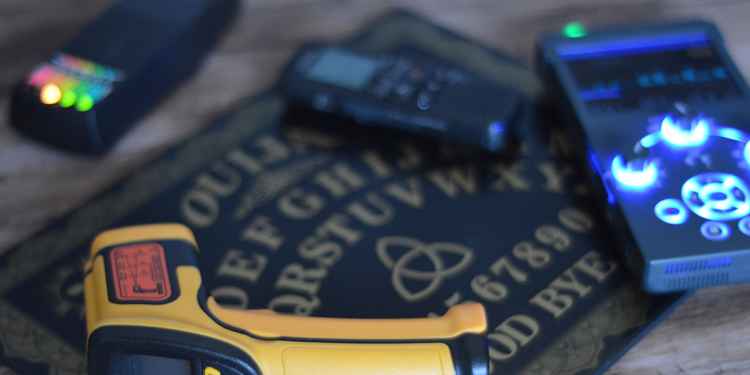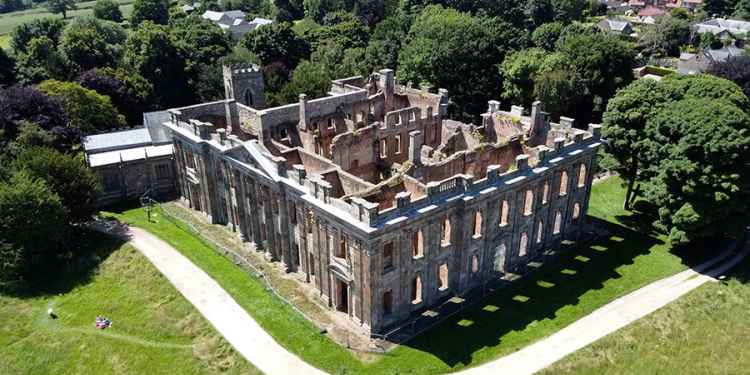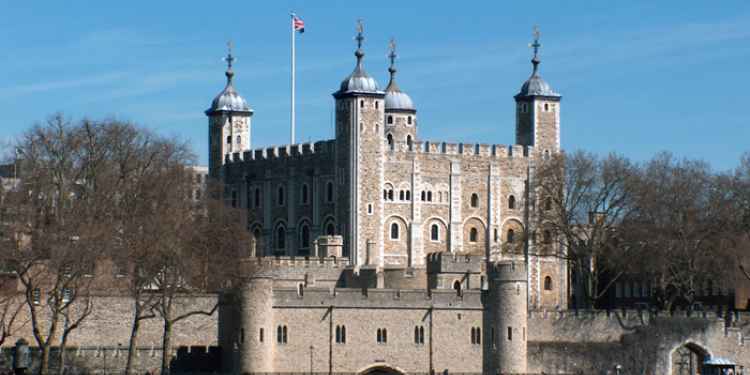
Photo: pixabay.com

Photo: pixabay.com
This page is more than six years old.
Do you have to declare that a house you are selling is haunted to potential buyers? Or does the legal principle "let the buyer beware" apply?
If you suspect your house might be haunted, you might feel a little guilty when it comes to moving as you know the next residents will unknowingly be forced to endure the same disturbances.
It's generally older houses that tend to be haunted. Of the ten most haunted houses in the world, six were built before 1900, the average age of the world's most haunted houses is 200 years. This seems logical as there needs to be some history at the property in order for spirits to return to the house after death. Perhaps the house is built on a medieval battlefield, a burial ground or is on the site of a murder or suicide.
The normal types of activities associated with a haunting include a general feeling of unease, strange noises, disembodied voices, odd smells or odours, temperature fluctuations, moving objects such as doors slamming, and ghostly apparitions appearing.
If you think that your house might be haunted, or perhaps it's the reason you're moving, you may want to keep quiet about it so that you don't scare off potential buyers, and it can. Properties being allegedly haunted can put people off buying them. This is also true of houses which are located near graveyards. But, are you under any obligation to make the disturbance known to buyers?
Of course, property law varies by country and even by local area, but as the principle "let the buyer beware" implies, it is up to the buyer to fully investigate the property they intend to buy. As part of the purchase, the buyer's solicitors should inspect the property for defects and raise relevant enquiries and searches.
An inspection of the property will always fail to reveal evidence of the paranormal, as this is not a check that is carried out by surveyors and the very idea of detecting ghosts or spirits is highly debated. Not to mention the fact that around two-thirds of people don't believe ghosts exist.
However, when the solicitors raise their enquiries, if any are specifically related to paranormal activity and whether you feel that your house is haunted, then you would need to be honest and answer yes if you believe that to be the case. If you withhold information or give a misleading answer, then it is possible that the buyer might have a case against you if they later come to the conclusion that the house is haunted, although that might be very difficult to prove.
There are a few rare cases where a haunted history has been proven in a court of law, most notably the case of Stambovsky v. Ackley in New York in the early-90s, which lead to what's now known as the "Ghostbusters ruling" in US law. In this case, the seller didn't disclose the fact that a murder had occurred in the house and that ever since it was believed to be haunted. In fact its reputation was so well known that it formed part of ghost tours of the area and the resident poltergeist was a minor local celebrity.
After a legal battle between Jeffrey Stambovsky and the seller of the house, the New York Supreme Court ruled in favour of Stambovsky and agreed that the owner should have warned him the property was haunted. As a result of this ruling, the sale was rescinded and the seller had to find a new buyer.
The reason Helen Ackley lost her case was because she herself had perpetuated rumours that her house was haunted, she even reported some of the paranormal disturbances to the local press. Because she publicised to the general public that her house was haunted, the court thought that she should have felt it necessary to share the same information with the buyer off the house. If she felt it was newsworthy, then it would also be relevant to a buyer.
So, whether or not the house was haunted was irrelevant, but because its owner had publicised its haunted reputation, the case went in the favour of the buyer.
Another notable case took place in the UK in 1969 when Mr. McKee reported his house at 69 Spencer Grove was haunted. He reported the disturbance to the local council, after he witnessed countless strange phenomena including poltergeist activity, strange knocks and bangs, and even the appearance of the ghost of a woman wearing white. McKee claimed that the phantom damaged his property, including furniture and even started fires in the property.
Hackney Council agreed to a reduction in rent, the landlord disputed this reduction but at the high courts the Lord Chief Justice Lord Parker agreed with Mr. McKee.
On the other side of the coin, what if you're buying a house and are worried it might be haunted? This is a little more straightforward. All you need to do is make sure you ask the specific question during the purchase, or instruct your solicitor to ask the question before you exchange contracts.
Estate agents are unlikely to lie about the history of a property, whether it be a murder or the reputation that it is haunted, especially if the information is known locally. It's also a requirement that the seller answer any enquiries raised. So, although it may be a little unusual to ask if your dream home is haunted before you buy it, it's the best chance you have of knowing in advance.
However, whether a house is haunted or not is really a matter of opinion. As a paranormal investigator I've been to many haunted locations, many people would swear that they've experienced something odd there and that it's haunted, however I'm yet to visit a property that I would called haunted.
In fact, I've visited 30 East Drive, a house which has the reputation of being the most haunted house in the UK. I thought the former council house was quite cozy, homely and I'd have no issue living there. But, like in the Stambovsky v. Ackley case, because so many people have reported paranormal activity there and its haunted reputation is so well known (it's been the subject of a movie) the current owner might find himself in hot water if he were to sell the house without making its history known to the buyer.
The truth is, battles have been fought all over the country, murders and suicides might have happened and been forgotten about, and not all hauntings require someone to have died at the location. If you believe in ghosts, then any house has the potential to be a haunted house and it's almost impossible to uncover every little detail about the property, especially when most people would deem these facts to be irrelevant to their purchase.
Personally, I'd be more than happy to buy a haunted house. As a fan of the paranormal it would make an interesting talking point when I had guests over. As I'm a non-believer, I know I wouldn't experience anything spooky in the house and it would be great for Halloween parties.
Learn With Higgypop
Hosted by Paralearning in association with Higgypop, these courses on ghost hunting, paranormal investigations, and occult practices draw on the experience of our team of paranormal writers.

Diploma In Capturing & Analyzing Electronic Voice Phenomenon
This course gives you practical and useful knowledge of ghost hunting and paranormal research, which is invaluable when conducting your own paranormal investigations or as part of a group event.
View Course
Diploma In Practical Ghost Hunting & Scientific Analysis
This course gives you practical and useful knowledge of ghost hunting and paranormal research, which is invaluable when conducting your own paranormal investigations or as part of a group event.
View CourseMore Like This

GhostsJune 10, 2025
Can A Ghost Write On Paper?

TravelMay 19, 2025
Ghost On A Ryanair Flight Salutes Passenger Mid-Air

Haunted BritainDecember 25, 2024
2024's Most Popular Paranormal Hotspots In The UK

GamesNovember 28, 2024
Can You Match These Famous Ghosts To Their Haunting Grounds?
 See More on Audible
See More on Audible
Comments
Want To Join The Conversation?
Sign in or create an account to leave a comment.
Sign In
Create Account
Account Settings
Be the first to comment.